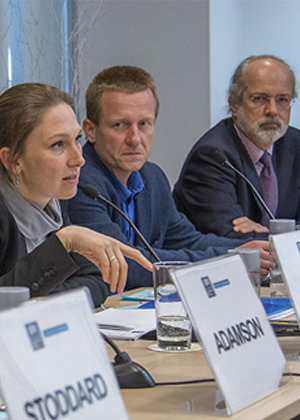Strengthening Humanitarian Response in Insecure Settings
LIVESTREAMED PUBLIC EVENT
Place: International Peace Institute (IPI), New York
Secure Access in Volatile Environments (SAVE)—a three-year research program carried out by Humanitarian Outcomes and the Global Public Policy Institute—explored how to deliver an effective humanitarian response amid high levels of insecurity. Based on fieldwork in four of the most insecure aid settings—Afghanistan, south-central Somalia, South Sudan, and Syria—the project identified good practices and recommendations on how organizations can improve their operations. The SAVE study and its findings are immensely relevant for the Emergency Gap Project and also in light of ongoing debates at the UN regarding the safety of aid workers and related issues of access and quality of humanitarian operations in conflict settings.
This event built on the findings of SAVE’s research on Presence and Coverage and those of other recent studies on the impact of insecurity on humanitarian operations, such as the United Nations Office for the Coordination of Humanitarian Affairs’ To Stay and Deliver study, Médecins Sans Frontières’ Emergency Gap: Insecurity study, and the Independent Commission on Multilateralism’s Policy Paper on “Humanitarian Engagements.” Based on this research, the event sought to identify lessons learned, best practices, and operational and policy recommendations on how to improve humanitarian access and coverage of needs in insecure settings.


 Strengthening Humanitarian Response in Insecure Settings
Strengthening Humanitarian Response in Insecure Settings